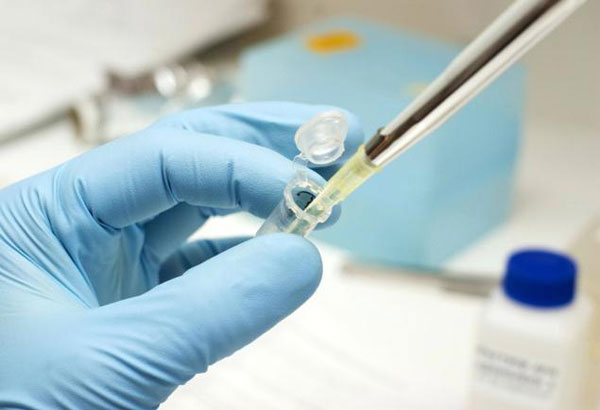DOH stops dengue vaccination program

For those previously uninfected, the analysis found that vaccination led to a benefit in preventing severe illness for at least 30 months – but problems could occur after that window period. File
MANILA, Philippines — The Department of Health (DOH) has shelved its dengue vaccination program following the “updated information” of Sanofi Pasteur that “more cases of severe disease” could occur among those given the Dengvaxia vaccine with no previous history of dengue.
The DOH decided to stop the program after receiving a preliminary briefing from Sanofi last Nov. 29 on the results of its up-to-six-years clinical data on Dengvaxia, said Health Secretary Francisco Duque III.
Based on the report, the vaccine has “shown consistent and sustained benefit for those who were previously infected with the dengue virus,” Duque said.
For those previously uninfected, the analysis found that vaccination led to a benefit in preventing severe illness for at least 30 months – but problems could occur after that window period.
“In the light of this new analysis, the DOH will place the dengue vaccination program on hold while review and consultation is ongoing with experts, key stakeholders, and the World Health Organization,” he said.
Senate sets probe
The Senate committee on health is set to conduct a probe into the DOH dengue vaccination program after Sanofi admitted its product poses serious health risks.
Sen. Joseph Victor Ejercito, chairman of the committee on health, said he would file a resolution to conduct an inquiry into the program after the pharmaceutical giant admitted that Dengvaxia could pose risks to those who have not yet contracted the disease.
The senator said he was looking at January to start the probe while letting the DOH deal with the matter first.
Sen. Nancy Binay today expressed alarm over the public health impact of Dengvaxia and asked the DOH to stop the vaccination program.
Binay called on the DOH and Sanofi to launch a nationwide medical advisory and information drive to reach out to parents whose children have taken the vaccine.
The senator also urged the DOH to temporarily stop the immunization program and conduct an audit which regions or provinces have not completed, or completed, all three doses of the vaccine.
The admission made by Sanofi regarding the risks posed by Dengvaxia is proof that the DOH, under the previous administration, rushed to administer the drug to school children, said Sen. Richard Gordon yesterday.
Gordon, chairman of the Senate Blue Ribbon committee that investigated the allegedly anomalous procurement of Dengvaxia, noted that there were already warnings issued before about the vaccine being largely untested.
DepEd to tackle risks
The Department of Education (DepEd) yesterday declined to comment on the suspension of the dengue vaccination program that covered over 700,000 students in Metro Manila and Regions III and IV.
Undersecretary Tonisito Umali said they are still verifying information over the matter and stressed the need for them to coordinate first with the DOH before coming up with a statement on the matter.
DepEd and DOH started the pilot implementation of the dengue vaccination program last year in Metro Manila and Regions III and IV.
It covered Grade 4 students enrolled in public schools.
Profiling
The DOH will be “strengthening and intensifying its ongoing surveillance” to monitor the condition of 733,713 school children aged nine and above who were vaccinated with Dengvaxia, Duque said.
He added that the DOH, through its regional offices, will do a “profiling of those vaccinated to determine among them who have had dengue prior to vaccination.”
Although all of those vaccinated have “protecting benefits” of at least 30 months, the DOH will also start coming up with a mechanism to make sure that they will be taken care of in the event of any complication.
“The vaccine is still safe and we want to emphasize this for the parents of those vaccinated. Don’t worry, the DOH is on top of the situation. We are continuously coordinating with Sanofi and WHO,” he said.
Duque maintained that the benefits to be acquired by those who have a history of dengue are high in terms of “much reduced cases of hospitalization and much reduced severity of illness.”
Duque could not ascertain the legal liability of Sanofi and those behind the DOH program.
Duque said the DOH had launched the program in 2016 in three highly endemic regions, Regions III, IV-A and National Capital Region, “in line with the recommendation of the WHO for mass vaccination in highly endemic areas or countries.”
The DOH had procured P3 billion worth of vaccines from Sanofi and of this, some P789 million have not yet been administered.
The world’s first dengue vaccine poses health risks to people yet to be afflicted with the potentially deadly virus, its manufacturer Sanofi admitted yesterday.
Health authorities in countries where Dengvaxia is approved will be provided with the updated information, Sanofi said.
Makati stops vaccination
Makati City suspended giving Dengvaxia a few days after Sanofi admitted that it poses harmful effects when administered to persons not previously infected by the virus.
Mayor Abby Binay ordered the Makati Health Department (MHD) to immediately suspend giving Dengvaxia to students and to the city’s employees until the DOH issues clarifications on the vaccine.
Binay also told the MHD to closely coordinate with the city’s education department as far as vaccine drives in schools are concerned. – Paolo Romero, Marvin Sy, Janvic Mateo
- Latest
- Trending































